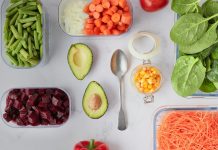
The Big Picture: Fertility and Food
When it comes to starting a family, there’s often a lot of focus on medical tests and treatments. But did you know that what you eat can also play a big role in fertility?
In both men and women, certain foods can actually help increase your chances of becoming parents. Let’s dive into what the research says.
What Does the Research Say?
Multiple studies suggest that diet can influence fertility. For example, a study published in “Human Reproduction” found that women who consumed a Mediterranean diet, rich in fruits, vegetables, and whole grains, were more likely to conceive.
On the men’s side, research in “Fertility and Sterility” showed that a diet rich in antioxidants could potentially improve sperm quality.
Women: The Power of Plants and Protein
Fruits and Veggies: They’re not just for keeping the doctor away. Foods rich in antioxidants like berries and leafy greens can help protect your eggs from damage and aging.
Lean Protein: Think fish and poultry rather than red meat. A study published in “Obstetrics & Gynecology” found that women who got more of their protein from plants rather than animals were more likely to become pregnant.
Men: Focus on Zinc and Healthy Fats
Zinc Up: Foods high in zinc like oysters, beans, and nuts have been linked to higher sperm counts and better sperm mobility.
Healthy Fats: Omega-3 fatty acids found in foods like salmon and walnuts are not only good for your heart but also improve sperm structure.
Both: Say No to Junk Food
For both men and women, processed foods high in sugar and trans fats have been shown to negatively affect fertility.
A study from “The American Journal of Clinical Nutrition” found that processed foods could actually lead to infertility in both sexes.
Quick Tips for a Fertility-Friendly Diet
Go Whole or Go Home: Whole grains like brown rice and whole wheat bread can regulate blood sugar, which helps regulate menstrual cycles.
Dairy Dos and Don’ts: Full-fat dairy products like yogurt can improve fertility, but be careful with ice cream and cheeses which can have the opposite effect.
Stay Hydrated: Believe it or not, even your choice of drink can impact fertility. Stick to water and avoid sugary drinks and too much coffee.
The Takeaway
Dietary changes won’t guarantee a baby, but they can improve your odds. Think of it as laying down fertile soil before planting a seed; it makes for a healthier, easier environment for growth.
Always consult your healthcare provider for personalized medical advice, especially if you’re having difficulty conceiving. With balanced eating and medical guidance, you’ll be setting the table not just for dinner, but for a family.
Follow us on Twitter for more articles about this topic.
Copyright © 2023 Scientific Diet. All rights reserved.








